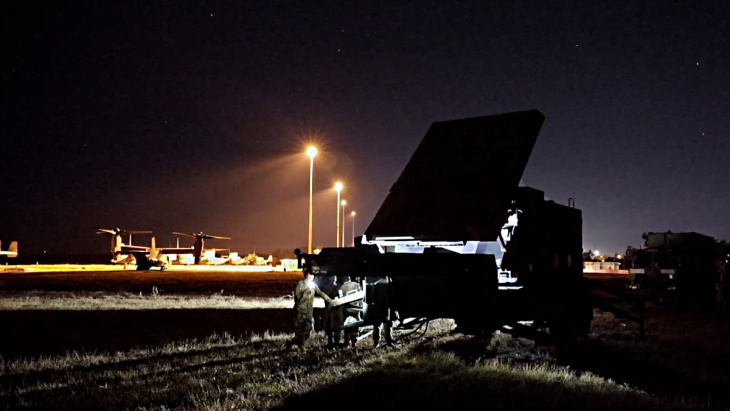The Janus Program - launched last month - is a next-generation nuclear power programme aimed at delivering "resilient, secure, and assured energy to support national defence installations and critical missions". Executive Order 14299 - Deploying Advanced Nuclear Reactor Technologies for National Security - was signed by President Donald Trump in May this year. It directs the Department of War to commence operation of an Army-regulated nuclear reactor at a domestic military installation no later than 30 September 2028. The Department of Army, designated by the Secretary of War as the Executive Agent for this mission, is leading the Janus Program on behalf of the Department of War.
The Army announced it has now identified nine sites through "comprehensive analysis and on-site assessment to identify optimal locations for initial deployment. The process evaluated mission-critical installations, energy requirements and resiliency gaps, power infrastructure, environmental and technical considerations".
The locations under consideration are: Fort Benning in Georgia; Fort Bragg in North Carolina; Fort Campbell in Kentucky; Fort Drum in New York; Fort Hood in Texas; Fort Wainwright in Alaska; Holston Army Ammunition Plant in Tennessee; Joint Base Lewis-McChord in Washington; and Redstone Arsenal in Alabama.
"While the final number and location for these microreactors on Army installations will be determined as part of the acquisition process, the Army is committed to maximising the number of sites based on technical feasibility, site suitability, and available resources," the Army noted.
"These early site selections align with the Department of War's goal of accelerating the pace of deploying on-site nuclear generation at our installations," said Jordan Gillis, Assistant Secretary of the Army for Installations, Energy and Environment. "Through the use of the Army's unique nuclear regulatory authorities, we are deploying a resilient, secure, and reliable energy supply for critical defence operations and in support of the most lethal land-based fighting force in the world."
The rollout of Janus technology will occur in stages as the Army validates lessons learned and ensures safe, efficient implementation. "Specific timelines for each location will be announced in future updates, as the team cooperates with military installations, residents, and the surrounding communities to keep all stakeholders informed," the Army said.
Meanwhile, the Army has executed a Memorandum of Agreement with the Defense Innovation Unit (DIU) to utilise its Commercial Solutions Opening (CSO) process and Other Transaction Authority (OTA) to begin the solicitation process which will result in awarding select vendors Other Transactions (OTs) to execute on the Janus Program goals. An Area of Interest (AOI) notification has been released via DIU's website to solicit industry concepts for deployment of advanced nuclear technologies. The AOI will gather technical and operational information from industry regarding deployment and use of microreactors on military installations to begin the CSO process.
"We've established a great partnership with the US Army," said DIU Energy Portfolio Director, Andrew Higier. "DIU is ready and excited to leverage our rapid CSO process to execute the Janus Program in collaboration with our government and industry partners. This collaboration will deliver advanced nuclear energy to Army installations, ensuring their most critical missions always have resilient and ready power."
The Janus Program will build commercial microreactors through a "nimble, milestone-based contracting model" in partnership with the DIU. The reactors will be commercially owned and operated, with the milestone payments intended to help companies close their business cases as they seek "nth-of-a-kind" production. The Army and DIU will be modelling this contracting mechanism off NASA's Commercial Orbital Transportation Services programme. The Army will provide technical oversight and assistance, including support to the full uranium fuel cycle and broader nuclear supply chain, ensuring the programme strengthens both defence and US industrial capabilities.
The Janus Program will build on lessons learned from Project Pele, a transportable nuclear reactor for electricity production. The DOE laboratory teams which partnered on the technical, legal, and policy aspects of Project Pele will also be working closely on the Janus Program.







_97013.jpg)
_51413.jpg)






